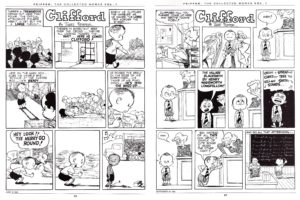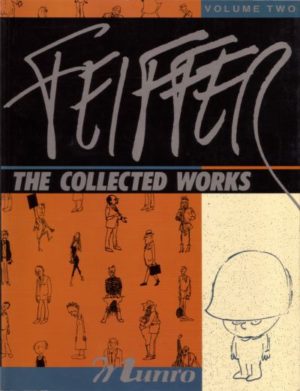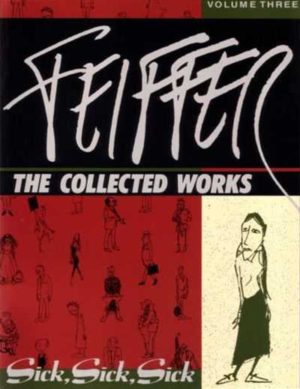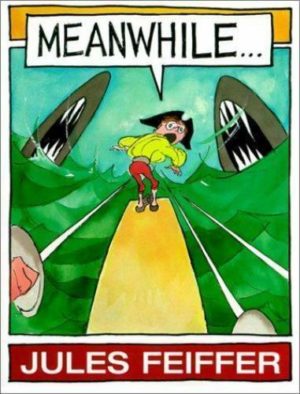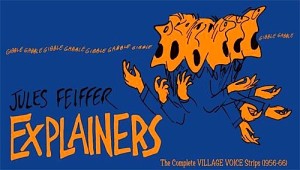Review by Frank Plowright
Fantagraphics now has a long and valued reputation for issuing quality archival series of the finest American comics has to offer. Among their earliest productions was this attempt to bring Jules Feiffer’s complete works back into print, which taught a valuable lesson when cancelled three volumes into a planned fifteen. It wasn’t a rule universally applied, but plenty of later Fantagraphics archival series would start not chronologically, but with the most popular volumes.
Feiffer’s national fame came in the 1950s when his satirical strips about New York’s middle classes struck a chord. His beginnings, however, were as an assistant in Will Eisner’s studio, starting in 1946 working on basic tasks for the eight page Spirit section Eisner produced for Sunday newspaper circulation. He began contributing stories for the main feature, and in 1949 was given his own one page comedy strip. Clifford was a gag feature featuring a likeable young boy with an active imagination pre-dating Dennis the Menace, running riot for eighteen months until Feiffer was drafted for army duty. Clifford and his pal Seymour have touches in common with Dennis, being generally good hearted kids exploring the world around them with often unfortunate consequences for any adults in the vicinity.
Clifford is interesting for the hints the strips drop about the voice Feiffer would eventually find and they’re imaginatively drawn, but there’s no pretending they’re otherwise anything more than serviceable gag strips providing a contrast to the seven page Spirit adventure they accompanied. The staging sometimes raises a smile, but little more, with childhood energy and exaggeration frequent themes. It’s only in the final six months of Clifford’s run that Feiffer begins to push at boundaries regularly, very occasionally even introducing a poignancy. The left hand sample strip could be Charlie Brown from the later Peanuts, while what is the right hand one if not proto Bart Simpson, even down to the lines on the blackboard.
The penultimate strip is a partial in-joke in which a jealous Feiffer murders Eisner to take over the Spirit section, substituting Clifford and his friends play acting at being the Spirit’s cast as they run through the main strip’s adventures that Feiffer co-wrote. It’s an effective change of pace, with Eisner’s gothic horror framing pages nicely conceived.
Presumably due to a desire for roughly equal pagination, nine Clifford strips are carried over to the next volume. Feiffer would return from his army service with his pencil and wit sharpened, resulting in Munro.

